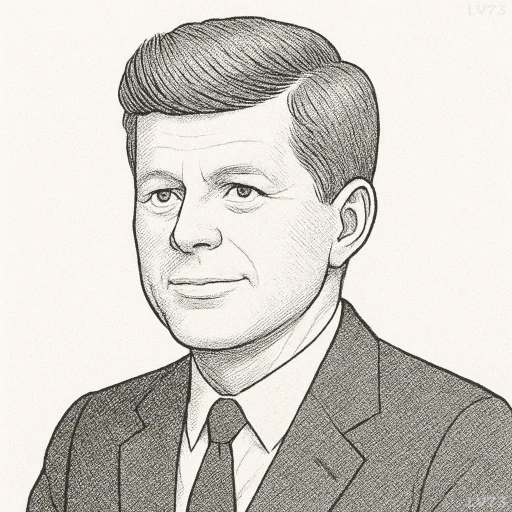“A man does what he must – in spite of personal consequences, in spite of obstacles and dangers and pressures – and that is the basis of all human morality.”

- May 29, 1917 – November 22, 1963
- American
- Politician
table of contents
Quote
“A man does what he must – in spite of personal consequences, in spite of obstacles and dangers and pressures – and that is the basis of all human morality.”
Explanation
In this quote, John F. Kennedy offers a profound insight into the nature of moral courage and ethical action. He suggests that true morality is rooted in the ability to act according to one’s conscience and sense of duty, regardless of the personal cost. The “man” he refers to is someone who rises above the fear of personal consequences, whether those consequences are sacrifices, risks, or social pressures, in order to do what is right. This statement speaks to the core of moral integrity—the willingness to prioritize what is just and necessary over self-interest or comfort.
Kennedy’s reflection resonates with the idea that morality is not defined by idealized concepts or lofty philosophical debates, but by the decisions individuals make in the face of adversity. It is easy to act in alignment with one’s values when the stakes are low or when there are no external pressures. But true moral courage is demonstrated when a person chooses the right course of action even when doing so might come at great personal cost—be it physical harm, social ostracism, or political fallout. This concept is not just theoretical; it is grounded in the practical and often difficult choices people must make in real-world situations.
The quote also touches on the historical and political context in which Kennedy was speaking. As president, he had to make numerous tough decisions, including during the Cuban Missile Crisis, when the world stood on the brink of nuclear war. Kennedy’s leadership during that time demonstrated his commitment to doing what was necessary for the greater good, even in the face of enormous personal and political pressures. This sense of moral responsibility transcends leadership in politics; it applies to anyone who faces difficult choices in life. The key takeaway is that true morality is not about seeking personal gain or avoiding hardship, but about doing what is right regardless of the consequences. It is a powerful reminder that ethical action often requires personal sacrifice, but it is that sacrifice that gives meaning and substance to moral choices.
Would you like to share your impressions or related stories about this quote in the comments section?


